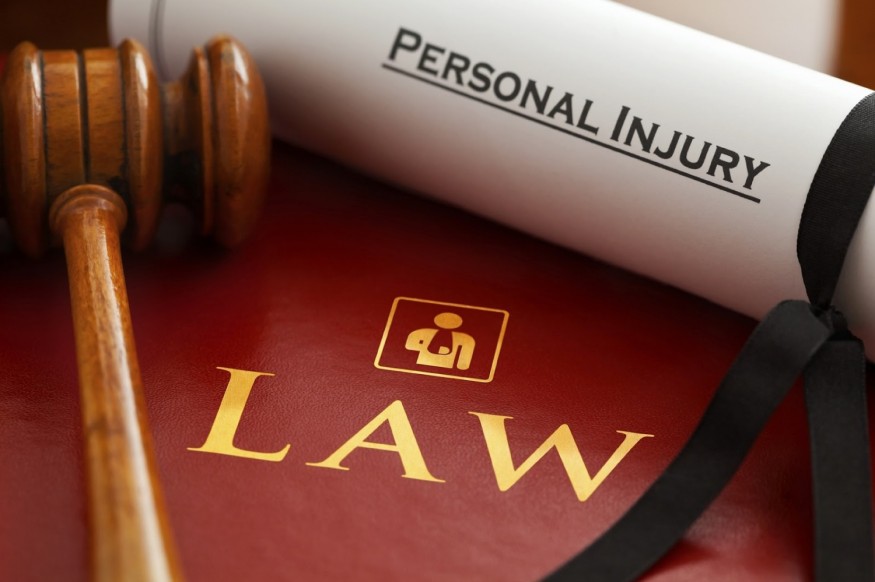The Process of a Personal Injury Lawsuit Explained

One engages in a personal injury lawsuit as a result of personal injury due to an accident caused by the negligence of someone else. The role of the personal injury lawyer is to guide you through the legalities and procedures of your case.
As stated by the professionals at Diamond & Diamond, "A personal injury case can go many different ways.". For this reason, it's imperative to understand the process of a personal injury lawsuit. Following is a brief description of this procedure.
Meeting With the Attorney
The first task undertaken by the injured party is to meet with a lawyer for consultation discussing case details and sustained injuries due to the accident. In general, the attorney will request that an authorization letter be signed by you, enabling him to obtain your medical records.
The attorney will enquire about your insurance coverage, whether or not you have contacted your insurance, and what you discussed. Your attorney will then launch an in-depth investigation which will include witness interviews, acquiring physical evidence, contacting your insurance broker, and photographing your injuries as well as the scene of the accident.
Pre-Trial Negotiations
Your lawyer will first contact the party responsible for your injuries as well as their insurance company to try and settle the matter without going to court. Your attorney will forward a letter of demand with a settlement amount to the parties in question. Should the pre-trial negotiations fail, your attorney will move towards the litigation process.
Filing and Serving the Complaint
Your attorney will file the necessary paperwork with the court, which will initiate the litigation process. The first set of paperwork that filed is called the complaint, which is an overall review of the case.
The court will then issue a summons that gets served to the defendant, notifying him of the complaint and the time-line in which they have to either pursue a dismissal or to answer it. The defendant will be served with both the summons and the complaint via mail or in person.
Defendant's Answer to Complaint
An answer is when the complaint is responded to by the defendant and can be any one of the following: Not enough information to deny or admit, admitted, or denied. Reasons or defenses as to why the defendant cannot be held liable may also be included in the response, which generally forms the basis for a motion to dismiss the complaint.
Interrogatories
Also known as the written questions phase, which is your account of the case facts. The interrogatories are, in general, case-specific but can be more widely spread. Your attorney will advise you as to which of these questions you should answer and which ones you object to.
The defense may request for admission (to deny or admit the facts of your case). Specific penalties are associated with this should you falsely respond, answer late, or neglect to acknowledge.
Discovery Phase
Evidence, documentation, testimonies, and other information in connection with the case are gathered from third parties and each other during this phase. It would be best if you were involved during this phase, so be sure to be available at any given time. Both the plaintiff and the defendant have the legal right to view all case-related documentation.
Court Appearance
This phase is referred to as a deposition. During this procedure, individuals will be questioned under oath. Everything said during this phase is transcribed by a court reporter. Depositions are used to lock individuals into the testimony they will give during the trial, testing the opposition's case strength as well as to find out how a person will react in front of a jury and a Judge.
Bringing in Expert Witnesses
The services of expert witnesses may be obtained in an effort to strengthen the plaintiff's case and claims. The use of expert witnesses can prove to be a very expensive tactic and, your lawyer will add in their cost if the court's ruling is in your favor.
Pre-trial Motions
Motions are requests filed by a lawyer requesting the court's ruling on some issues. A motion to dismiss may be filed by the defendant following completion of the discovery phase to dismiss parts or all of the plaintiff's case. A response has to be made within 6 to 14 days after a motion was filed.
Mediation
Mediation is a joint meeting by both parties, their lawyers, and a mediator and is non-binding. Mediation takes place to establish if an out of court settlement can be reached by the parties involved.
Going to Trial
The majority of Personal Injury cases never go to trial. Should your case go to trial, a jury or judge will examine all evidence to reach a verdict.
The Bottom Line
If you have suffered a personal injury due to an accident caused by another's negligence, it's important to remember to obtain the services of a qualified and experienced personal injury lawyer.
Subscribe to Latin Post!
Sign up for our free newsletter for the Latest coverage!
© 2026 Latin Post. All rights reserved. Do not reproduce without permission.















